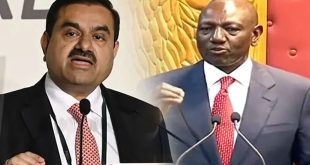Kathmandu, 1 November (Hindustan Reporter). Controversy has arisen among the constituent parties of Nepal's ruling coalition regarding Prime Minister KP Sharma Oli's proposed visit to China. In this visit of Oli, there is pressure to sign the implementation agreement of China's ambitious project Belt and Road Initiative (BRI). The Nepal government has indicated that this agreement can be signed during the Prime Minister's visit.
Many leaders of Nepali Congress, a key ally of the ruling coalition, have opposed the signing of the BRI implementation agreement. Nepali Congress leader NP Saud, who was the Foreign Minister in the previous Prachanda government, said on Friday that it is not right to sign this agreement without national consent. The government, especially Prime Minister Oli, should take initiative for this and try to create a national consensus on this. The agreement should not be signed without resolving the points on which there was disagreement earlier.
Nepali Congress spokesperson and former finance minister Prakash Sharan Mahat said that with the formation of the alliance with Oli, it was the party's official decision that the implementation of the BRI would not be signed without changes in the current provision. There has been no difference in China's stance regarding BRI, hence Nepali Congress cannot support its signing in this situation.
Senior Nepali Congress leader Dr. Shekhar Koirala said that if the Prime Minister signs the BRI implementation agreement without consensus among the alliance parties, it could have a direct impact on the alliance. Nepal is not ready for the expensive rate at which China gives loan to the BRI project. If the interest percentage on Chinese loan was like that of World Bank or Asian Development Bank, then it can be considered once but China, which has trapped many countries in its debt trap, wants to trap Nepal also in its trap, about which Nepal is cautious. Is.
 look news india
look news india

